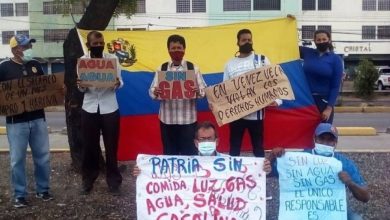America tries to unseat Nicolás Maduro
«Nobody predicted the date of the Russian revolution,” notes Elliott Abrams, Donald Trump’s special representative for Venezuela. “We have no ability to predict when regimes collapse. But we’re heightening the contradictions.”
When Donald Trump’s administration recognised Juan Guaidó (pictured), the speaker of Venezuela’s national assembly, as the country’s interim president and imposed sanctions against the oil industry in January, some believed that the armed forces would quickly abandon Nicolás Maduro. But although living conditions are deteriorating, the regime shows no sign of imploding. Indeed, it is cautiously taking the offensive. It has arrested Roberto Marrero, Mr Guaidó’s chief-of-staff, has stripped Mr Guaidó of his political rights and may be poised to arrest him too.
The Americans are pursuing their aim, which they describe as “constitutional regime change”, through a four-pronged strategy. The first prong is diplomatic: 54 countries now recognise Mr Guaidó as president. The second, and most important, is stronger sanctions. Those against PDVSA, the state oil monopoly, have halted its exports to the United States, which was almost its only cash buyer. This has forced PDVSA to sell oil at smaller profit to new, more distant clients, for example India. It has also made it harder for PDVSA to import diluents (needed to process its heavy oil) and diesel. That difficulty has contributed to two long power cuts across much of Venezuela in the past month.
On March 22nd the Treasury added Venezuela’s state development bank to the list of bodies with which American financial institutions should have no dealings. This will “shut down their whole network of dollar transactions”, says a senior administration official. Individuals in the regime and family members, some of whom are studying at American universities, have had their bank accounts blocked and their visas revoked.
The third prong is humanitarian aid. An attempt to take aid across a border bridge from Colombia was easily blocked by the regime. The Red Cross says it will start delivering aid this month on “a scale similar to Syria” to some 650,000 people. That represents a tacit climbdown by Mr Maduro, who has always denied the existence of a humanitarian emergency. Lastly, the American administration is trying to develop the capacity of Mr Guaidó’s team to rebuild Venezuela.
Although the armed forces have stuck by Mr Maduro, the government does not trust them. Army units have their weapons locked up at night and their fuel rationed, says the American official. A former Venezuelan intelligence officer has revealed videos of dissident officers being tortured. The government is using paramilitary forces to suppress demonstrations and arrest opposition activists, and relies on 2,000-5,000 Cuban intelligence and security personnel to prevent any military rebellion. “They are inserted into the military chain of command with the authority to give orders,” says William Brownfield, a former American ambassador in Caracas.
In response, the Trump administration is increasing the pressure on Cuba. It has partially activated Title III of the Helms-Burton Act, which has been suspended by presidents since its passage in 1996. This would allow Americans to sue some foreign companies that use assets expropriated after the Cuban revolution of 1959. But Cuba’s communist regime has survived 60 years of American economic pressure. “The message to the Cubans is ‘You’re next’,” says a former official. “They have no reason to help” in Venezuela.
The administration insists that the regime is weaker and the opposition stronger than at the start of the year. “Maduro can’t govern, I think that’s setting in,” says the official. “So eventually it will be difficult for them to stay in power.” Maybe. Perhaps the collapse of public services will prompt a popular uprising. But after the massive demonstrations that followed Mr Guaidó’s proclamation as interim president, there are signs that the opposition is losing heart and momentum. Daily life, amid cuts in power and thus water supplies, is grim. In a report published this week, Human Rights Watch and Johns Hopkins University found increased maternal and infant deaths, the unchecked spread of diseases such as measles, diphtheria and tuberculosis and high levels of child malnutrition. Officials know that sanctions will add to hardship, and thus to emigration.
But what else can the Americans do? Mr Trump has repeatedly refused to rule out military action, but a conventional invasion of a country more than twice the size of Iraq, with many armed civilians, would be a massive and risky undertaking. Mr Brownfield suggests that some Venezuelan emigrants could become anti-regime guerrillas, but Colombia’s government would be nervous of that.
The alternative is to put much more stress on negotiation, while encouraging Latin America and Europe to increase the pressure by freezing the assets of regime leaders. In 2015-16 Mr Maduro used talks to buy time and divide the opposition. But they look inevitable. The Americans say the only topic for discussion with Mr Maduro and a handful of his cronies would be the conditions of their departure. But in the run-up to a free election all factions, including the ruling chavista movement, should be included, says one official. Those with long memories recall that all democratic transitions in Latin America, except in Grenada and Panama, required talks. The two exceptions were where the United States invaded.
